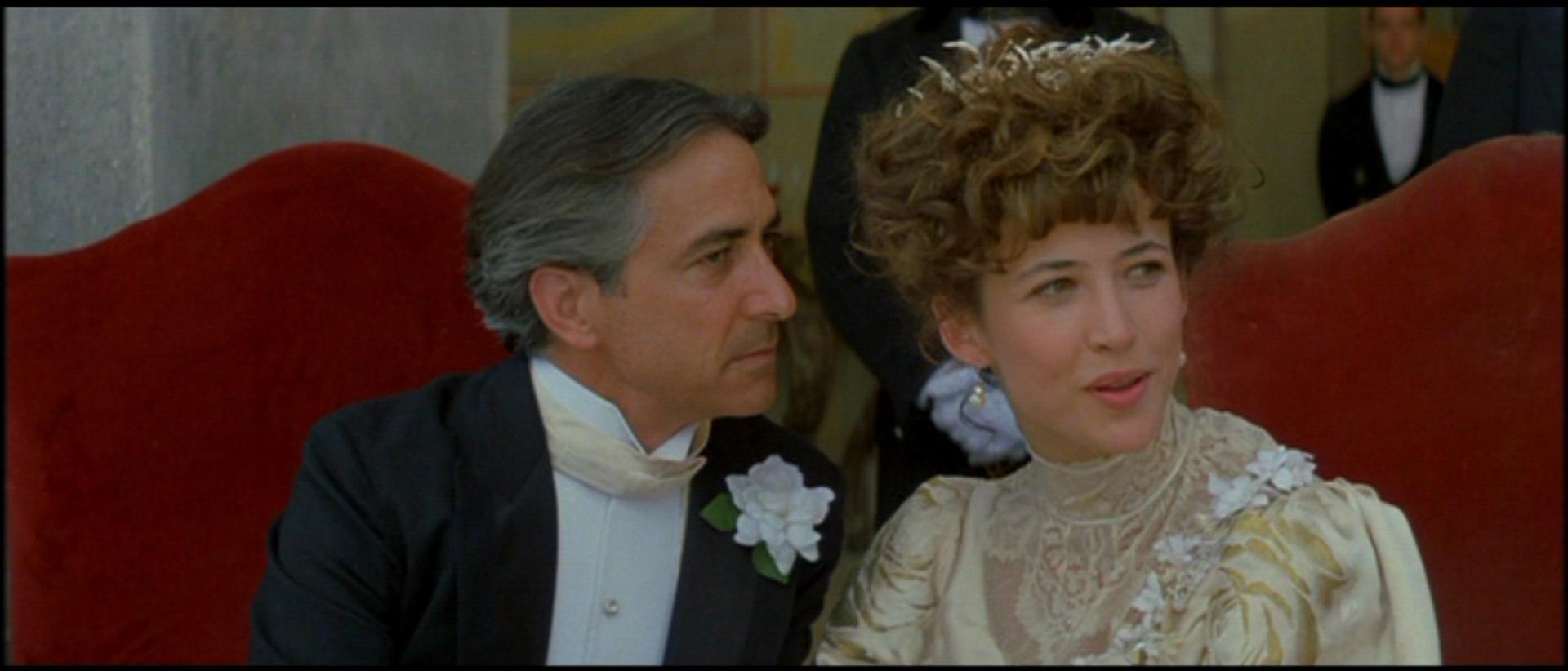I've reviewed a few books over the years here at Quintessence of Dust, but From Extraterrestrials to Animal Minds: Six Myths of Evolution by Simon Conway Morris was the first book I blogged through that I was genuinely excited about reading. I bought it sight unseen, new and in hardcover, from a publisher of dubious reputation, because I was beguiled by the author and the title and what I mistakenly believed that title to mean. I have already written that I regretted paying money for the book once I read the first couple of chapters and realized I'd been had. From Extraterrestrials to Animal Minds isn't about myths, nor is it about interesting controversies, and its ideas/claims are mostly recycled from previous works by the author. In retrospect, the book didn't merit the attention I gave it, and it doesn't merit yours.
 |
| David Strathairn and Sophie Marceau as Theseus and Hippolyta in A Midsummer Night's Dream (1999) |
But that doesn't mean I regret the exercise as a whole. Writing my way through the book helped me clarify some of my own thoughts and ideas. So this post is as much about me and my ideas as it is about the book.
🌵 Reading about evolutionary convergence again—and specifically reading Conway Morris as he enthused chaotically about the latest examples of convergence—reinforced my deep interest in Design Space. Evolution is (among other things) an exploration of Design Space, and I share with Dan Dennett a desire to explore—not avoid—what it means to see design in the biological world. Evolutionary convergence, to me, is a clear picture of a process that is guided by design. Design does not require a designer. That claim, by the way, simply does not mean that there isn't a designer or a god or a million of them. It means that design is a question, not an answer.
It's hard to tell whether Conway Morris agrees with that last part (about the necessity of a designer). From Extraterrestrials to Animal Minds ends in a Funhouse of the Paranormal but is otherwise vague about whether a deity is loading the dice. What is clear to me is that the author wants evolution to sit in a wacky supernatural cosmic tableau, and I think (but I'm still unsure) that his choices to propound "rebuttals" to non-issues like "no limits" and to shallow misconstruals of "random" suggest that he seeks to infuse the world with supernatural nonsense. I don't care about his preference for haunted worlds, but I was shocked and disappointed to see how eager he was to twist science and to sneer at his non-religious colleagues who do the work. Selfishly, I'm keen to explore design and evolution with a religious person, and I am lucky enough to have other places I can do that. Simon Conway Morris is not qualified.
👎 The book has a discernible trajectory that makes it even less worthy of consideration, in my view. Consider that the last two chapters—one a misleading crapfest about non-human animal minds and the other a shambling entrance to paranormal woo—are in the title. If (and this is a guess) the goal was to get us there, then the silly stuff that came before—the non-myth of no limits, the red herrings about randomness, the odd little chapter about missing links—served some kind of purpose in the author's mind. Even the good chapter about mass extinctions looks different from the vantage point of the last two chapters. He (er, Mortimer) says the book is about confronting "received wisdom" but I'm not convinced this was ever the aim. One possibility is that Conway Morris is more interested in the paranormal portals of the final chapter than he is in evolution itself, and so he sought to downgrade evolution to something pedestrian and prefigured. I might be very wrong about that, but the book made little sense to me otherwise.
🎭 And now I should explain this post's title. I felt bad about not letting Hippolyta give the benediction in the post on the final chapter, so she gets the final word. The context is yet another play-within-a-play, this time the presentation of the "rude mechanicals" at the end of A Midsummer Night's Dream. Her point (and mine) is that the acting is so bad that she has moved from scorn ("This is the silliest stuff that ever I heard") to pity. Bottom the Weaver, as Pyramus, has just completed a hilariously histrionic speech. I don't suggest that From Extraterrestrials to Animal Minds is nearly as funny as Pyramus, or that we should mock it the way Theseus heckles Bottom. But I did think the whole thing sad enough to end with this:
THESEUS: This passion, and the death of a dear friend,
would go near to make a man look sad.
HIPPOLYTA: Beshrew my heart but I pity the man.
Image credit: Filmaffinity

No comments:
Post a Comment